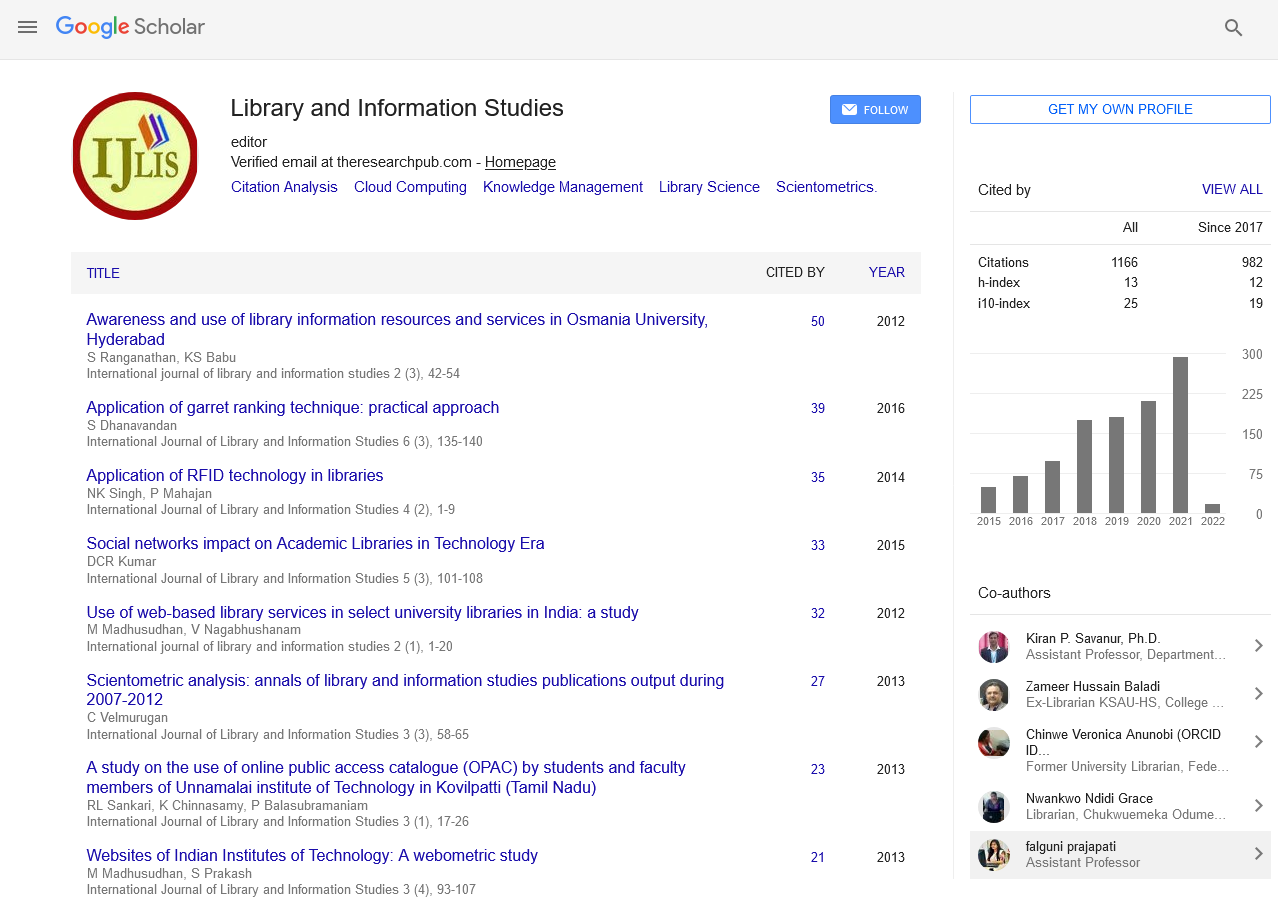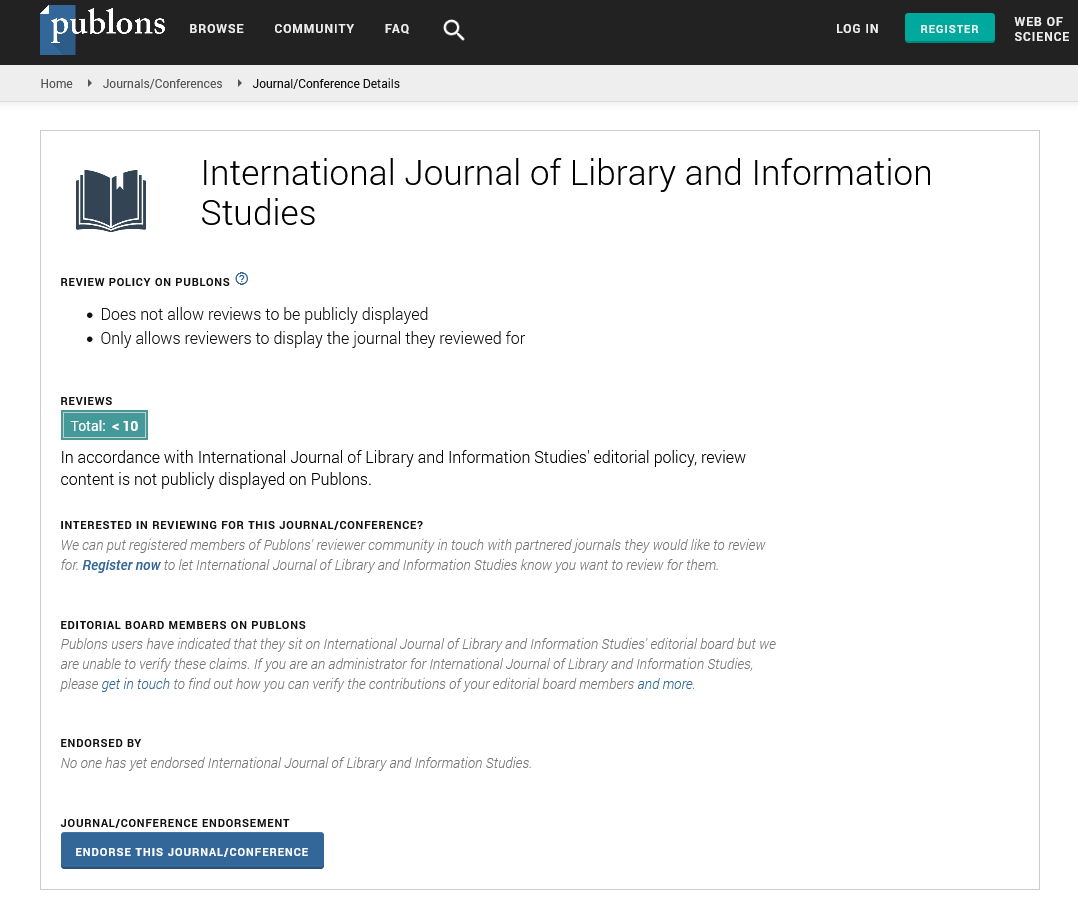

Influence of Copyright Act 2004 on the Provision of Information Resources in Academic Law Libraries in North Central, Nigeria.
Abstract
Author(s): Raphael, Gabriel Okplogidi, Agada, Eric Ojobo, Tofi, Simon Ternenge
This study examined the influence of Copyright Act, 2004 on the provision of information resources in academic law libraries in North Central Nigeria. Descriptive survey rsearch design was adopted for the study. The study surveyed 303 respondents (comprising 13 staff and 290 {500-level} law students). The sample was drawn across five academic law libraries in North Central Nigeria. Questionnaire was used as instrument for data collection for the study. Descriptive statistical tools such as tables, frequencies and percentages were employed for data presentation and analysis, while chi-square statistic was used for the test of hypothesis at 0.05 level of significance.. The study found out that staff and students of academic law libraries in North Central Nigeria are aware of the relevant provisions of the Copyright Act, 2004 as it relates to provision of information resources in the law libraries.Findings of the study also revealed that academic law libraries in North Central Nigeria are aware of the provisions of the Copyright Act, 2004 and same influences the provision of information resources and services in those libraries. However, the study revealed that, there is partial observance and enforcement of the provisions of the Act. This largely is as a result of some of the challenges identified during the cause of the study. These challenges as revealed by the study include: lack of proper organization of right owners in various aspects of intellectual property industry, lack of legal education on implication of intellectual property, lack of professional specialisation in the practice of intellectual property, globalisation and technology, dynamic nature of intellectual property, poor judicial sympathy and difficulty in negotiating licensing agreement for online databases. Finally, recommendations were made based on the findings of the study.
Call for Papers
Authors can contribute papers on
What is Your ORCID
Register for the persistent digital identifier that distinguishes you from every other researcher.
Social Bookmarking
Know Your Citation Style
American Psychological Association (APA)
Modern Language Association (MLA)
American Anthropological Association (AAA)
Society for American Archaeology
American Antiquity Citation Style
American Medical Association (AMA)
American Political Science Association(APSA)



